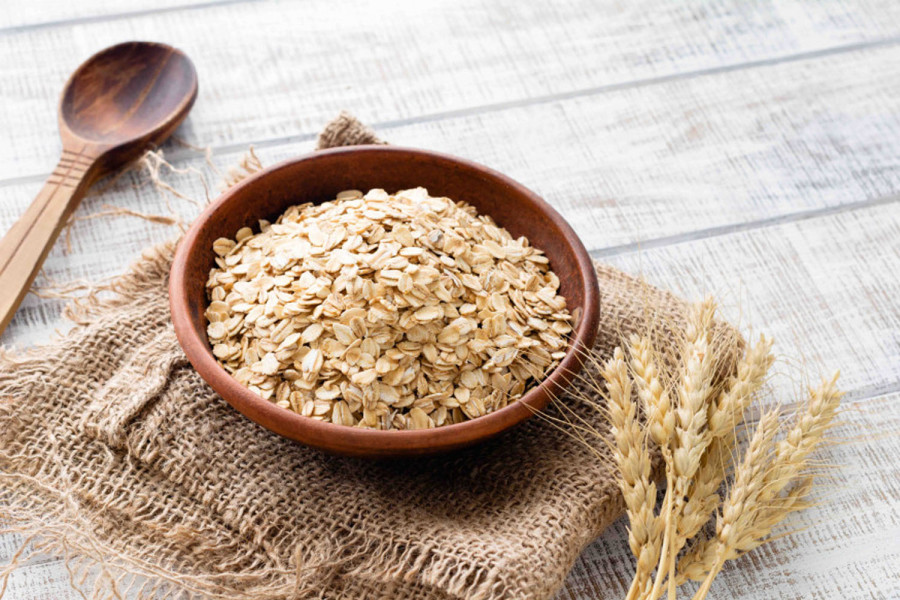Money
Government body proposes new standards for rolled oats
The move aims to protect public health amid growing consumption of the cereal.
Krishana Prasain
The Department of Food Technology and Quality Control has proposed new standards for rolled oats to protect public health amid growing consumption of the cereal in recent years.
Rolled oats are produced by grinding clean avena sativa and avena byzantine, removing dehulled and fired by flaking through a roller or another appropriate method. Quick-cooking oats and instant oats fall under rolled oats.
Nepal’s new maximum levels for oats have been notified to the World Trade Organisation through the Ministry of Agriculture and Livestock Development recently. Once the World Trade Organisation approves the standards, the department will implement them by publishing them in the Nepal Gazette, said the department.
The Food Standard Fixation Committee formed under the Food Act 1967 prepared the new guidelines for oats and sent the proposal to the Ministry of Agriculture and Livestock Development.
If oats are found to contain ingredients against the set standards, they are considered to be adulterated.
Matina Joshi Vaidya, director general of the Department of Food Technology and Quality Control said the demand for oats has been increasing among consumers due to their health benefits and that is also why the department proposed the new standards on it.
“Most of the oats that Nepalis consume are being imported, so if the country has its own standards then quality and safety can be measured,” Vaidya said. “Once the standards come into effect, it would be strict in terms of quality control and the importer also needs to declare which quality of oats they are importing.”
“Nepal has been importing oats in bulk and repacking it and to assure the repackaging quality, the proposed standards will be helpful,” said Vaidya.
The standards will be implemented in imported, domestically-produced and repackaged oats, Vaidya said. “If anything is found against the standards in oats, the whole batch will need to be recalled and fines and penalties could be imposed,” she said.
Dr Atul Upadhyay, a nutritionist said that different types of nutritional values are found in oats, like fibre, which is very important for human health, including protein, fat, vitamins and minerals. “Oats are consumed by diabetes patients also, but I suggest to them to consume another oat, except for the rolled oats which is good for such patients,” he said.
Panu Poudel, chief operating officer of Bhat-Bhateni Supermarket and Departmental Store said that with rising health consciousness and awareness among Nepali consumers, the sales of oats-like cereals have been doubling annually. “The demand has increased by 100 percent,” he said.
The supermarket has 75 percent imported oats, while 25 percent are domestically produced or repackaged, Poudel said. “With different varieties, the consumer tends to choose the imported ones. The oats cost from Rs200 to Rs1,000 depending on the size,” he added.
According to the proposed oats standards, the rolled oats need to be clean with natural taste, colour and smell. There should not be external material, fungus, insects, mouse or insect hair, wood, metal, glass and other harmful substances. Rolled oats should not be made using external colour. Rolled oats should be free from abnormal smell and taste.
As per the proposed standards, the moisture should not be more than 12 percent by mass maximum, total ash should not be more than 2 percent by mass maximum, and acid insoluble ash should not be more than 0.1 percent, according to the proposed standard. The crude protein should be 10 percent by mass minimum while alcoholic acidity should not be more than 0.18 percent. The uric acid should be 100 mg per kg at maximum and the total aflatoxin 20 percent mg per kg at the maximum.
Any pesticide residue, heavy metals, chemicals, micro organisms, toxins and other harmful contaminants should also be determined by the government.
The production, packaging, handling, storage and transportation needs to be according to the food safety work procedure determined by the Ministry of Agriculture and Livestock Development.
Rolled oats need to be sealed and packed in clean and dry good grading packaging. The packaged rolled oats need to be labelled according to Food Regulation, 1970.
According to the Department of Customs, Nepal imported 1,510 tonnes of rolled oats worth Rs 79.71 million in the first five months of the current fiscal year, compared to Rs 80.14 million for the same period last fiscal year. The country imported 2,819 tonnes of oats worth Rs 153.78 million in the last fiscal year. The country has been importing oats mainly from India.




 9.6°C Kathmandu
9.6°C Kathmandu















